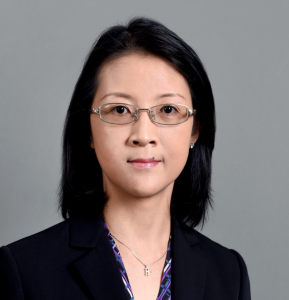Presented By: Industrial & Operations Engineering
IOE 899 Seminar Series: Jing Li, Arizona State University
A Positive Transfer Learning Model for Telemonitoring of Parkinson’s Disease

The IOE 899 Seminar Series is open to all. U-M Industrial and Operations Engineering graduate students and faculty are especially encouraged to attend.
The seminar will be followed by a reception in the IOE Commons (Room 1709) from 4:00 pm-5:00pm.
Abstract:
When learning a new skill, people can transfer their knowledge about other related skills they have grasped to expedite the learning. This human ability has inspired the development of a class of statistical machine learning models called Transfer Learning (TL). TL is an excellent choice for Precision Medicine because it allows for building a robust model for each patient based on not only the data of that patient but also transferred information from other patients.
An important problem that the existing TL literature has overlooked is “negative transfer”, referred to as the situation of worse performance of a TL model than a model without transfer learning. We provide theoretical study on the risk of negative transfer, which further motivates the development of a positive TL model to prevent negative transfer. This model is applied to building patient-specific models using smartphone-generated activity data such tapping, speaking, and walking to telemonitor patients with the Parkinson’s Disease. Telemonitoring belongs to the emerging health care platform of mHealth, which utilizes wireless technologies to enable remote monitoring of patient conditions and timely medical decisions.
Additionally, this talk will briefly introduce our developments of TL models in other health care applications, including multi-modality imaging data fusion for early detection of the Alzheimer’s Disease and hierarchical modality and feature selection from neuroimaging data for subtype identification of migraine.
The seminar will be followed by a reception in the IOE Commons (Room 1709) from 4:00 pm-5:00pm.
Abstract:
When learning a new skill, people can transfer their knowledge about other related skills they have grasped to expedite the learning. This human ability has inspired the development of a class of statistical machine learning models called Transfer Learning (TL). TL is an excellent choice for Precision Medicine because it allows for building a robust model for each patient based on not only the data of that patient but also transferred information from other patients.
An important problem that the existing TL literature has overlooked is “negative transfer”, referred to as the situation of worse performance of a TL model than a model without transfer learning. We provide theoretical study on the risk of negative transfer, which further motivates the development of a positive TL model to prevent negative transfer. This model is applied to building patient-specific models using smartphone-generated activity data such tapping, speaking, and walking to telemonitor patients with the Parkinson’s Disease. Telemonitoring belongs to the emerging health care platform of mHealth, which utilizes wireless technologies to enable remote monitoring of patient conditions and timely medical decisions.
Additionally, this talk will briefly introduce our developments of TL models in other health care applications, including multi-modality imaging data fusion for early detection of the Alzheimer’s Disease and hierarchical modality and feature selection from neuroimaging data for subtype identification of migraine.